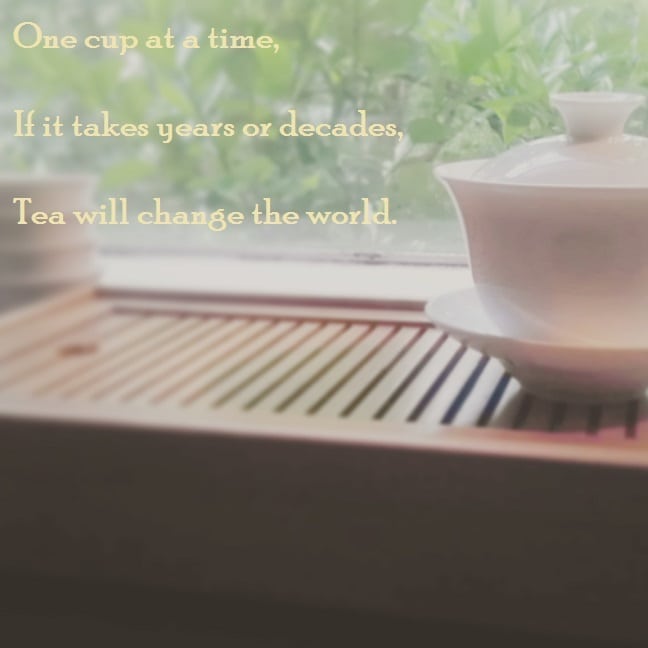In the not-too-distant past, I was reading one of my fictional stories to a friend. He stopped me within the first paragraph and asked a very simple question, “What are you trying to say?”
Not as in, what was I trying to say in the story, but rather, what was I trying to say as a writer? And I . . . didn’t have an answer for him. He further explained that some of his favorite authors were always trying to convey one particular message or theme in their various works—no matter how disparate.
J.R.R. Tolkien used The Lord of the Rings as a playground for his knowledge on languages, and as an allegory for the horrors of war. Robert Jordan used The Wheel of Time as a way to cope with PTSD. Whether they intended to or not, authors tried to say something in their writing. But I had no clue what it was I was trying to say.
Shortly after that, I found myself pouring over some of my old tea haikus. (Yes, I did some of those.) And I ran across this little forgotten “gem”:

A pretty tall claim, even for a haiku. However, it made me wonder, Was that my message? If so, it was an unabashedly optimistic (and ambitious) one. As I gave it more thought, the more it crystalized. Yeah . . . that was my message.
Tea will change the world.
Perhaps I should explain.
